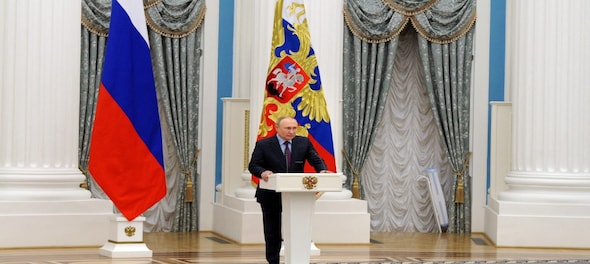
A Russian invasion of Ukraine may lead to several supply chain issues across various commodities. The potential of more conflict at the borders of Russia and Ukraine are already leading to price hikes in various commodities. Russia is one of the world’s largest exporters of energy and fuel. Crude oil prices are already inching closer to $100, but oil and energy are not the only commodities that are seeing an increase in prices.
Also read: Explained: Oil, gas surge on supply fears as Russia-Ukraine crisis worsens
Food crunch
Russia and Ukraine together contribute around 29 percent towards the global wheat export market. With Ukraine often being referred to as the ‘breadbasket of Europe,’ food prices are expected to rise further in case of a conflict.
The pandemic-related supply chain bottlenecks and labour shortages had already caused food inflation to rise to some of its highest levels, but an invasion ahead of procurement season may only serve to exacerbate issues. Corn, wheat, barley and rye are all expected to see an increase in prices, with wheat and corn from Ukraine being exported to not just Europe but China, Africa and the Middle East as well.
Also read: Explained: Russia-Ukraine conflict and its impact on commodities
“Rising food prices would only be exacerbated with additional price shocks, especially if core agricultural areas in Ukraine are seized by Russian loyalists,” said Per Hong, Senior Partner at consulting firm Kearney, to CNBC.
Metal impact
Apart from food, the two countries are global leaders in the production and export of metals like nickel, copper, iron. Other raw materials like neon, palladium, platinum, and several chemical products, especially petrochemical derivatives and products, are also manufactured and exported in large numbers from Russia and Ukraine.
Also read: Should you buy gold now? How analysts are viewing the Ukraine-Russia conflict
While the European region is already reeling under global logistical bottlenecks in lieu of the pandemic, it is expected to bear the brunt of the supply chain crisis.
Hard times for Germany
Germany will be hurting particularly hard. The country not only relies heavily on Russian and Ukrainian exports, but also is a major consumer of Russian natural gas for its electric power generation. That itself could cause a slump in production across German factories, which will further affect logistical and manufacturing chains further downstream.
Also read: Explainer: What is the Nord Stream 2 pipeline?
“If tensions continue to rise and we see an increase in disruptions due to a potential war or sanctions, it will hold back manufacturing production in Germany. Factories would need to curtail production, which would cascade to manufacturing in other countries,” Atul Vashistha, Chairman and CEO of supply chain risk intelligence firm Supply Wisdom, told CNBC in an email.
Apart from the conflict disturbing the flow of goods, sanctions from the US and NATO allies will also make it harder for Russian exports to arrive in Western markets. Instead, the goods may be diverted to countries like China, which would be happy to deal with Russia in such circumstances.
Also read: What’s at stake for India as Russia-Ukraine tension escalates
